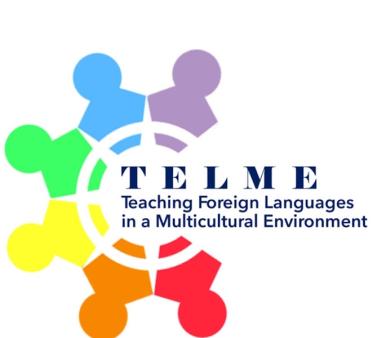Objectives
-
To gain a Research Master’s Degree in LCER specialization Iberian and Latin American Studies (ETILA), national pathway.
-
To gain a joint Spanish and French Master’s-level degree (Universidad Autónoma de Madrid (UAM) and Rennes 2, respectively), international pathway.
-
To apply a knowledge base and theoretical and methodological tools to the study of Iberian and Latin American areas.
-
To provide input with shared findings relevant to the specificity of the field of study concerned.
-
To learn how research works in conjunction with the research teams (CELLAM (Ancient and Modern Languages), LIDILE (Linguistic Engineering and Language Teaching), ERIMIT (Interlanguage: Memories, Identities and Territories) to which the Master’s degree is affiliated.
-
To conduct in-depth studies of literature, culture, arts and society, linked to the requirements of the competitive teaching examinations (CAPES, Agrégation). Possible gateway between this training and the preparation for the competitive examinations.
-
Mobility: optional international stay for the national pathway and a compulsory stay for the partner university international pathway. The objective is to reinforce current international collaborations and student exchanges and to expand the European Higher Education Area (EHEA).
Skills
The main objective is to set up a solid knowledge base and the theoretical and methodological tools required to design a research study, set up a project and develop expertise in the Spanish-speaking and Latin American areas. The targeted skills are:
-
Good command of search engines and methodology
-
Ability to produce a comprehensive review of the issue / Pose a research question / Write a review.
-
Knowledgeable about the concepts of identities and cultures and specifically about identity and cultural issues in Spain and Latin America
-
Knowledgeable about theories of literary reception and mediations
-
Practical application through textual critical analysis of theoretical concepts by analysing literary works: memory narratives, memory narratives in Spain and Latin America
-
Proficiency in the major linguistic trends. Notion of borders and enhancement of linguistic tools as constitutive elements of identity and territories
-
Comparative and contrastive analysis of translations
-
Proficiency in translation tools (Spanish / French, French / Spanish) and critical analysis
-
Reflecting on and addressing the issues of literary creation. Critical tools, drafting reviews
-
Good command of the theoretical analysis tools for still or moving images
-
Putting theoretical concepts into practice through the analysis of documents related to the Iberian Peninsula and Latin America
-
Within the supporting research laboratories: teamwork for the organization of study days and conferences, project setup, open days, literary meetings, fairs, etc. Presentations and written summaries
-
Expertise in the fields of Spanish - and Portuguese - speaking areas
Course Content
Classes are structured around three main areas: Literature, Civilization and Linguistics (Spanish- and Portuguese-speaking areas). The ETILA Master’s Degree is divided into two options:
-
One option or study the entire syllabus at Rennes 2.
-
Joint degree option with the Autonomous University of Madrid’s (UAM) Master’s degree in Literaturas hispánicas: Arte, Historia y Sociedad (Hispanic Literature: Art, History and Society) (http://www.uam.es/literaturashispanicas). All classes for both options are shared over the 3 semesters. The joint degree, designed in collaboration with UAM, is spread over two years, and semester 10 must take place at UAM (3 Rennes 3 mobilities, and 3 UAM mobilities).
Master 1
Semester 7: one Methodology Teaching Unit (UEM) / three Specialization Teaching Units (UESs) / one Language Teaching Unit (UEL) and compulsory research seminars.
Semester 8: one UEM: professional conferences and participation in the research team’s work / two UESs / one UEL (beginner’s Portuguese or Catalan possible or for foreign students, French language assistance).
Master 2
Semester 9: one research teamwork UE / two UESs
Semester 10: one dissertation UE (national pathway) / four UESs (3 UEs + 1 dissertation UE) for the international pathway. Possibility to keep the UEL optional.
The research project takes place over the two years (M1 and M2) and is supervised by a lecturer-researcher. The outcome is a 80-120 page dissertation defended before a jury of lecturer-researchers (Rennes 2 / UAM) for the international pathway.




